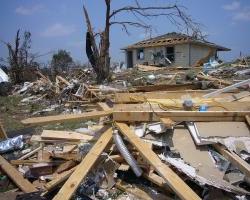Post traumatic stress disorder (PTSD) can be triggered by various traumatic experiences, but the symptoms are most often recognized in individuals suffering military related trauma.
This is not surprising since military experience and PTSD are frequently linked in TV shows, films, and the news media, and much PTSD research today involves traumatized veterans.
While veterans deserve excellent assessment and treatment for PTSD, the equating of PTSD with military service has been associated with less recognition of the same symptoms when caused by other types of trauma.
“The implications are that many people who develop PTSD following non-military combat traumas - particularly rape - are less likely to have it recognized by those around them, and are also less likely to seek help for their difficulties,” said researcher Dr. Ian Tharp.
Non-Military Related PTSD
Non-military causes of PTSD are more common when you consider the wider population. Symptoms can arise from experiences such as natural disasters, physical or sexual assault, traffic accidents, or industrial accidents. A number of people develop symptoms after spending time in hospital ICUs (intensive care units).
Dr. Tharp points out that the likelihood of having PTSD symptoms is greater after these types of events than after military combat. Yet, without increased awareness of this in communities, non-military PTSD symptoms may be ignored by those who have them and overlooked by family or friends.
So, familiarize yourself with the signs of PTSD and take them seriously no matter what event triggered their development. A person’s symptom intensity and need for help is not determined by the type of trauma gone through.
The Signs of PTSD
If you, or someone you know, persistently experiences some of these symptoms a mental health assessment is recommended.
- recurring/involuntary/intrusive memories, traumatic nightmares, flashbacks of the trauma, intense/prolonged distress after exposure to traumatic reminders, intense reaction after exposure to a trauma-related stimulus.
- persistent, effortful avoidance of trauma related thoughts/feelings, or of external reminders of the trauma (e.g., place, objects).
- amnesia (not owed to injury) around features the trauma, continuous negative expectations/beliefs about the self, persistent trauma-related negative emotions (e.g., anger, guilt, fear)
- loss of interest in pleasurable activities, feelings of alienation or detachment from others, difficulty expressing positive emotions.
- irritable/aggressive behavior, self-destructive/reckless behavior, hyper-vigilance, heightened startle response, trouble concentrating, problems sleeping.
Source: Science Daily
Photo credit: State Farm (@flickr)



